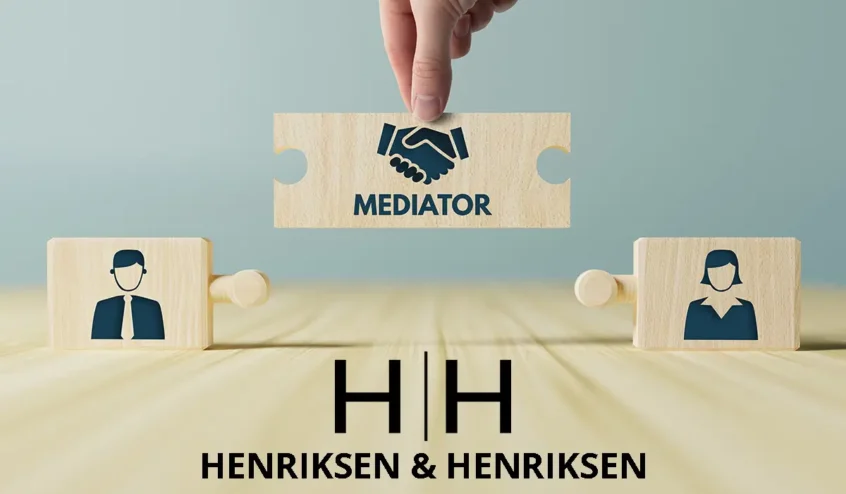Debunking Common Myths about Divorce Mediation

Divorce can be a challenging journey, but it doesn’t always have to be synonymous with contention and courtroom battles.
As mediation attorneys in Utah, we’ve witnessed firsthand the transformative power of divorce mediation in resolving disputes with dignity and efficiency.
Yet, despite its many benefits, there are prevalent myths surrounding divorce mediation that often deter couples from considering this valuable option.
In this post, we’ll debunk these misconceptions and shed light on the reality of divorce mediation.
Myth #1: Mediation Lawyers in Utah Are Only for High-Conflict Cases
Fact: Contrary to popular belief, divorce mediation isn’t just reserved for high-conflict divorces. In fact, mediation is an incredibly versatile tool that can benefit couples at any stage of their separation journey, including those who are parting ways amicably.
Mediation lawyers in Utah are skilled in facilitating productive discussions and helping couples reach mutually acceptable agreements, regardless of the level of animosity between them.
Myth #2: Divorce Mediation Is Only for Simple Cases
Fact: Another misconception about divorce mediation is that it’s only suitable for straightforward, uncomplicated divorces. However, mediation can effectively address a wide range of complex issues, including child custody, division of assets, and spousal support.
Experienced mediators in Utah are equipped with the knowledge and expertise to navigate even the most intricate divorce cases, ensuring that both parties’ interests are considered and respected throughout the process.
Myth #3: Mediators in Utah Can’t Provide Legal Advice
Fact: While mediators aren’t permitted to offer legal advice, they can provide valuable insights and guidance to help couples make informed decisions. Additionally, each party has the option to consult with their own divorce attorney outside of mediation sessions.
This can help ensure that their rights and interests are protected. By combining the expertise of mediation lawyers with their facilitative approach, couples can benefit from a constructive divorce resolution process.
Myth #4: Divorce Mediation Always Leads to Compromise
Fact: One of the biggest misconceptions about divorce mediation is that it inevitably leads to compromise at the expense of one party’s interests. However, mediation is designed to empower couples to collaboratively explore creative solutions that meet their needs and priorities.
Rather than viewing compromise as a weakness, mediation encourages couples to prioritize cooperation and communication. This helps foster a sense of mutual respect and understanding throughout the divorce process.
Myth #5: Mediation Is Time-Consuming and Expensive
Fact: Contrary to popular belief, divorce mediation in Utah is often more time-efficient and cost-effective than traditional litigation. By avoiding lengthy court proceedings and legal battles, couples can save time and money while achieving a more amicable resolution to their divorce.
Additionally, mediation allows couples to maintain greater control over the outcome of their case, rather than leaving critical decisions in the hands of a judge.
Myth #6: Divorce Mediation Is Only for Couples Who Get Along
Fact: While it’s true that amicable communication can facilitate the mediation process, it’s not a prerequisite for success. Mediators are trained to help couples navigate difficult conversations and manage conflict constructively, even in cases where there is tension or disagreement.
Through open and honest dialogue facilitated by a skilled mediator, couples can address underlying issues and work towards mutually beneficial solutions, regardless of their current level of cooperation.
Myth #7: Mediation Is Not Legally Binding
Fact: Some couples may hesitate to pursue mediation due to concerns about the enforceability of agreements reached outside of the courtroom. However, in Utah, divorce mediation agreements are legally binding once approved by the court.
This means that both parties are obligated to adhere to the terms of the agreement, providing a sense of security and certainty for the future. Additionally, mediation offers greater flexibility for customization, allowing couples to tailor agreements to their unique needs and circumstances.
Myth #8: Mediation Enables One Spouse to Overpower the Other
Fact: A proficient mediator diligently observes the power dynamics between spouses and employs specific techniques to resolve any disparities. Should one spouse try to dominate the process, the mediator halts the mediation.
However, even the most skilled mediator may remain unaware of a power imbalance if it transpires outside of the mediation sessions and the spouses fail to communicate it.
Myth #9: Women Face a Disadvantage in Mediation
Fact: Women encounter no greater disadvantage in divorce mediation than in court. In reality, mediation often presents an opportunity for women to secure a favorable outcome by negotiating an agreement that considers non-legal factors.
Unless it is a court-ordered (mandatory) mediation, a woman retains the freedom to terminate the mediation process and/or decline to sign an agreement that appears unjust.
Myth #10: Men are Disadvantaged in Mediation
Fact: Men experience no heightened disadvantage in mediation compared to court. Similar to women, men can frequently achieve a more favorable outcome through divorce mediation by negotiating an agreement that considers non-legal factors.
Unless mandated by the court, both men and women have the liberty to halt the mediation proceedings and/or reject an agreement perceived as unfair.
Myth #11: All Divorce Attorneys Endorse and Comprehend Mediation
Fact: Divorce mediation is a relatively novel concept. Many adversarial attorneys lack substantial experience with the collaborative approach inherent in mediation. Some even oppose mediation, asserting that divorcing spouses should exclusively negotiate through legal representation.
However, attitudes are gradually shifting as attorneys become more cognizant of mediation’s advantages for their clients. Meanwhile, individuals seeking mediation for their divorce should seek out consulting attorneys who embrace this alternative approach.
Myth #12: In Mediation, the Mediator Determines What’s Fair and What Isn’t
Fact: Unlike a judge or arbitrator, a mediator lacks the authority to dictate decisions in divorce cases in Utah. The mediator’s role is only to facilitate negotiations toward an agreement that each party deems sufficiently equitable.
Myth #13: Mediation is Akin to Therapy
Fact: It’s imperative to distinguish between therapy and mediation. While therapy centers on emotional healing, mediation is a structured process geared toward practical agreement resolution. Mediators function as neutral third parties, guiding discussions and ensuring an impartial and equitable outcome in divorce cases in Utah.
Myth #14: Divorce Mediation Works Only for Couples with Children
Fact: Mediation is a versatile tool adaptable to diverse family dynamics, not restricted to couples with children. Whether or not children are involved, Henriksen & Henriksen’s mediation services can be tailored to address individual needs, fostering a constructive and cooperative approach to divorce.
Conclusion
Divorce mediation offers a viable alternative to traditional litigation, providing couples with a collaborative and empowering approach to resolving disputes. By debunking these common myths about divorce mediation, we hope to encourage more couples to explore this valuable option and discover the many benefits it has to offer.
Whether you’re navigating a high-conflict divorce or seeking an amicable separation, you need to ensure your rights are adequately protected. Our mediation lawyers in Utah are here to guide you through the process with compassion, expertise, and respect for your individual needs and priorities. Contact Henriksen & Henriksen at (801) 521-4145 to schedule a free consultation.
